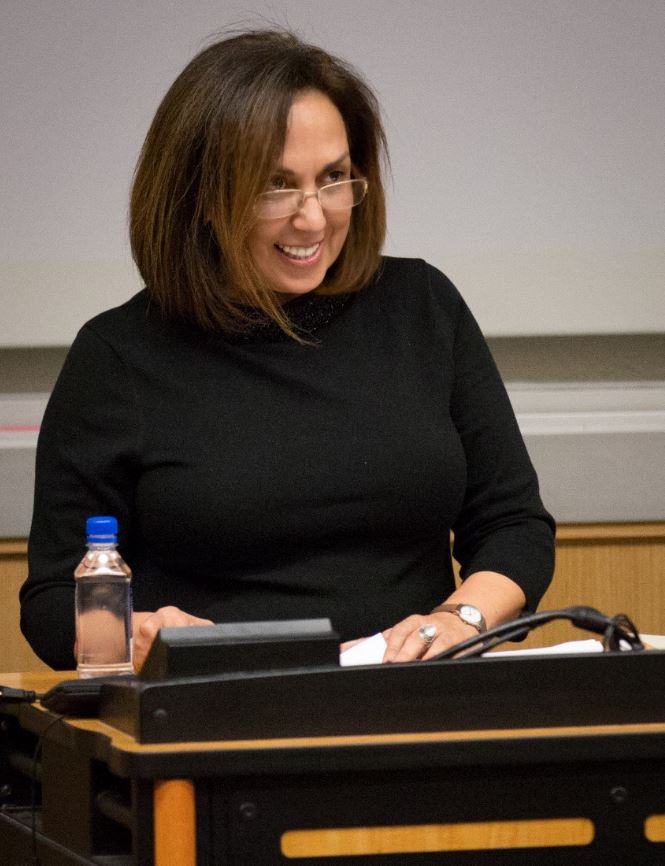
Award Winners
T. Cole Jones, is an assistant professor in the department of History and
Sorin Matei, is a professor in the Brian Lamb School of Communication
Title: Prototyping a Digital Humanities Toolkit for Operational Military History
The project proposes a digital mapping toolkit for visualizing and interpreting military operations across historical and geographic boundaries. This is an important step toward analyzing in a fine-grained manner historical reality. Historical-humanities scholarship has only slowly adopted the latest technologies to blend narratives with maps and data in an interactive format to facilitate comprehension. Historical information stored as data, should do more than simply illustrate the narratives. This is difficult to accomplish with old-fashioned maps, the proverbial “snapshot in time.” Digital maps, which represent reality as supported by powerful databases, can do this much more efficiently. Furthermore, providing the data behind the maps allow scholars to customize information to study or teach the desired material in the desired fashion, or build predictive or diagnostic scenarios. Data can be used to ask questions, test scenarios, and make inferences. Digital maps can be animated to show the dynamic facets of historical processes, indicating how facts, interpretations and conclusions change over time. In effect, digital maps can create a new method of historical discovery.

Title: History and Nostalgia and Edith Wharton's Morocco
History and Nostalgia in Edith Wharton’s Morocco will generate a highly-accessible yet academically-rigorous retrospective of this celebrated author’s travelogue In Morocco (1920). Edith Wharton traveled to the French Protectorate of Morocco in 1917 at the bidding of Resident General Hubert Lyautey. Her visit was choreographed by the Protectorate, and she consequently describes the souqs in Marrakesh, the narrow streets of the walled medina of Fez, frenzied rites at the mausoleum of Moulay Idriss, and a purported pirate lair in Salé. Relying on French officers as informants, Wharton ultimately puts forth a false interpretation of Morocco as an oppressive patriarchy populated with passive women and devout fanatics. This award allows me to undertake research that will eventually lead to a long-overdue counternarrative to this celebrated author’s disingenuous descriptions and exotic stereotypes that persist until the present day.

Title: Land of the Indians: An Indigenous History of Indiana
There is no single comprehensive historical analysis of the indigenous history of the region that encompasses the modern state borders of Indiana. Despite the name that suggests a tribute to the founding populations of the state's original inhabitants, the historical narrative widely used throughout the state is riddled with inaccuracies and deeply entrenched mythologies. This results in an ongoing perpetuation of a thinly veiled master narrative that emphasizes the Anglo-European conquest of a "virgin wilderness," with particular emphasis on the heroics of pioneer settlers, regional militias, and the spread of American civilization across the Midwest. The Miamis, Potawatomis, Shawnees, and Delawares appear frequently as foils to the founding of the state, but are excluded as contributors to the development of the region. The forced removals and voluntary migrations of the mid-nineteenth century are generally considered the final chapter for American Indians in the state. Their experiences as the original "settlers" of the region, their ongoing negotiations to live in their homelands after the removals, and their contributions as citizens throughout the twentieth century are thoroughly neglected. In 2016, as many contemporary Hoosiers celebrated the bicentennial of the state's founding the histories of the indigenous communities past and present remained hidden and overlooked.

Title: A Palace of Her Own: Queen Mariana of Austria's Private Residence in Madrid as a Center of Diplomacy, 1679-1696
A Palace of Her Own” examines the influence of Queen Dowager Mariana of Austria (1634-1696) on the fierce diplomatic negotiations over the future of the Spanish succession, which dominated European politics during the later years of Carlos II’s reign (r. 1665-1700). It focuses on Mariana’s activities in the Palace of Uceda, where she lived from November 26, 1679 until her death of breast cancer on May 16, 1696. The building today houses the highest consultative organ of the current government (the Consejo de Estado) and is closed to the public. Then as now, its central location on the corner of Calle Mayor and Bailen, three hundred meters from the Madrid Royal Palace, indicates its significance. Although Mariana was the only member of the royal family who lived there for a significant amount of time (sixteen years), virtually nothing is known about the palace during that period or about the role that it played in the later decades of the seventeenth century in the diplomatic arena. This is a major oversight: her political and dynastic capital as mother of the king and former regent of the monarchy transformed the palace into a hub of diplomatic and political negotiations. Foreign dignitaries from the Holy Roman Empire, the electorate of Bavaria, France, and the Papacy, members of the ruling elite, and the royal couple frequently attended the palace, which became sort of a satellite court. This project investigates the architectural history of the building—it underwent a substantial remodeling to house the queen and her extensive entourage—and examines it as a political space that allowed a woman to shape national and international politics.
Germina Veldwachter, is an associate professor of the School of Languages and Cultures
Title: 'A Debt of Honor': The Second World War, Jewish Refugees and the Republic of Haiti
'A debt of Honor: The Second World War, Jewish Refugees and the Republic of Haiti' investigates together the Black question and the Jewish question during the Second World War in the Caribbean. It takes the rarely examined 1938 Jewish refugee settlement project in Haiti as an intricate stage that allows us to comprehend current debates on the global migration crisis and the host of legal, economic and cultural challenges it poses to what we understand by 'national sovereignty'. Drawing not only from Jewish and Postcolonial studies, but also from philosophy, history and political sciences, this avenue of research elucidates heretofore overlooked ‘communit[ies] of suffering’ (Said).

